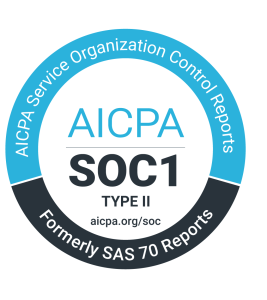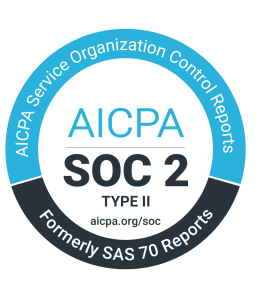
The unusual risks and complex framework of the cannabis industry warrant an unusual insurance structure. Without it, cannabis businesses take enormous financial risks that jeopardize their livelihoods. This three-phase approach gives a structured way to ensure protection throughout the life of your business: planning, startup, and expansion. This, in turn, will ensure that the cannabis business of any entrepreneur is well protected against regulatory compliances, product liabilities, and property damages typical of the somewhat complex cannabis industry.
Phase 1: Letter of Intent (LOI) Stage
In many states, cannabis license applications require you to outline your insurance plans. While you are not required to purchase insurance at this stage, providing a letter of intent (LOI) from an insurance provider can satisfy this requirement. The LOI serves as a commitment that you will obtain the necessary coverage upon receiving your license.
Key Considerations:
Regulatory Compliance
The LOI, on the one hand, provides the means of satisfying the requirement for insurance without necessarily incurring financial costs for buying a policy prior to actual need. This is quite beneficial, particularly to first-time applicants who might be entering the cannabis industry for the very first time.
- Future Preparedness: The LOI will position your business for ease into the build-out phase of your operation because insurance is already factored in. This proactive approach helps avoid delays and ensures readiness to move forward the instance a license is approved.
- Strategic Advantage: As your business is still in the pre-operational or planning phase, there isn’t really a pressing need to invest in active insurance policies just yet. However, showing that you have a strategy in place for obtaining insurance is crucial for moving forward in the licensing process.
Phase 2: Build-Out Stage
Congrats you secured a license and real estate! Most operators need to do some level of construction ahead of opening the location to get it up to code and ready to operate. As construction begins, a builder’s risk policy becomes essential to protect against potential damages to the property during the building process. Additionally, a premises-only general liability policy is important to mitigate risks related to the construction site. Depending on the project’s specifics, you may need to explore additional coverage options, such as equipment insurance or environmental liability insurance.
Key Considerations:
- Lease Agreements: Now, go through your lease agreement and see what it says about insurance requirements from the landlord side. Quite often, landlords are required to be added as additional insured to your policy. In this way, if anything happened during the construction, they also would be protected.
- Ownership Structure: If you own the building where your business will operate, ensure that your insurance policy covers the physical structure itself, not just the construction activities. This is important for protecting your investment in the property.
- Continuity of Coverage: Construction projects are usually known to take more time, and it is very important to maintain continuous coverage during the build-out period. This may require revising the terms of your policy or increasing the duration for which coverage is provided so that, at all times, there is no gap in coverage.
- Flexibility and Scalability: The insurance policy should be agile enough to accommodate changes in each stage of your project. It is wise to take out a short-term policy, preferably 3-6 months since this is the average time taken to complete a build-out phase. This flexibility assures you that your coverage grows with the project, changing as your business does.
Phase 3: Operational and Full Operation
At this stage in the cannabis industry, general liability, property insurance, product liability, cyber liability, and other cannabis-specific risks would all be under one comprehensive insurance package. As your business scales, so does your risk profile. That is why embedding ongoing risk management strategies into your insurance framework will be important to ensure that your coverage grows with your business to address evolving and new risks.
Key Considerations:
- Regulatory Compliance: The cannabis industry is highly governed, and you should be concerned whether your cannabis insurance policies fit within the specifics of your state regulatory requirements. That means following state and local laws and regulations, plus industry standards for product safety and security. Failure to meet the administrative requirements can lead to being fined, penalized, or even losing your license.
- Ownership Structure: If your business has over 51% common ownership across entities, you are able to add new locations to your existing program via endorsement. This approach allows you to consolidate coverage in one place for easier management of your insurance program and to achieve some economies of scale. Consolidating coverage makes managing your insurance program easier since it is all in one location and easily followed to ensure everything regarding your business is covered.
- Economies of Scale: Your policy rate should go down as your business grows and your exposure base increases, such as higher sales, larger insurable value, or expanded square footage. With each such expansion, adding a new policy may reset the exposure base, meaning you cannot take advantage of the scale economies. Consolidation in coverage helps maintain lower rates as your business grows. This approach enables one to get value for money for insurance and maximize the insurance budget.
Phase 4: Expansion
When expanding your cannabis business, it’s important to extend your comprehensive insurance package to new locations. This ensures that all aspects of your operations are protected as your business grows. With that in mind, you might want to consider other policies depending on the complexity of your business: additional policies like EPLI or employment practices liability insurance-which protects against claims of discrimination or wrongful termination-or D&O, which covers the personal liability of directors and officers for lawsuits.
Key Considerations:
- Common Ownership: Ownership of greater than 51% between entities means that additional locations can be added to your current insurance program by endorsement. The two primary advantages of this method are consolidated coverage for better administration of your insurance program and attainment of economies of scale. Consolidation of coverage also makes insurance program administration easier because it is easier to monitor your policies and, therefore, better be assured that all aspects of your business are covered.
- Economies of scale: This means your business and exposure base are growing. For example, sales are growing, insurable value is growing, and square footage is growing, and your policy rate is going down. With every new expansion, a new policy may be added, hence keeping your exposure bases starting all over again and not allowing you to take advantage of economies of scale. Consolidating helps in retaining lower rates as your business grows. This will enable you to make full utilization of your insurance budget and ensure that you derive the best value for your coverage.
Protecting Your Investment
Whereas expansion is a very exciting time for any business, it thus gives way to new challenges and risks. Ensuring that your insurance coverage keeps pace with the growth of your business will help protect your investment and make your business continue to be successful. It’s possible during this phase of your business to ensure your business is well-protected and positioned for long-term success by implementing an appropriate strategic approach to insurance.
Cannabis retailers now have the option to access business insurance with BLAZE Insure. This business service is provided in partnership with Alpharoot to ensure operators are working with vetted and trusted insurance experts that understand the complexities of cannabis operations. Learn more about this service at the link below and watch our recent webinar to see how BLAZE and Alpharoot are working together to protect dispensaries around the country.
Contributed By Eric Schneider, Managing Director of Alpharoot
Eric Schneider stands at the forefront of the cannabis industry as the Managing Director of AlphaRoot. His reputation as a respected figure among industry leaders is a testament to his profound impact in this field. Eric’s journey to the pinnacle of success is marked by his strategic and analytical approach. He focuses on well-calculated, thoughtful steps towards his goals, steering clear of distractions in the ever-evolving cannabis landscape. What sets Eric apart is his unwavering dedication to mastering the complexities of business operations, establishing him as a trailblazer in the sector. His visionary mindset is not just about leading AlphaRoot; it’s about revolutionizing it. Eric’s ambition to turn AlphaRoot into a titan of the industry is not just a goal—it’s a clear trajectory, setting the stage for unprecedented growth and innovation. His leadership and foresight promise to propel AlphaRoot to new heights, shaping the future of the cannabis industry.




